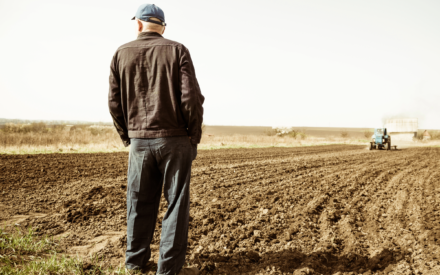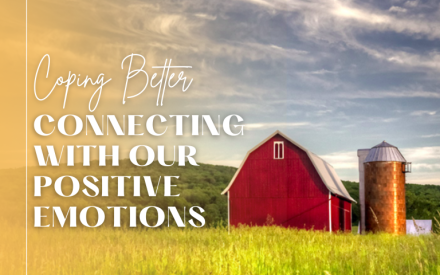Every day, Wisconsin farmers and farm families face financial challenges, physical demands of the job, and challenges outside of their control that impact their lives. These challenges can lead to chronic stress that can affect a farmer’s mental and physical well-being, their relationships, and decision-making and create unhealthy coping mechanisms, such as alcohol and substance use.
Coping with farm stress through substance use is not uncommon
Nearly 50 percent of rural Americans and 74 percent of farmers have been directly impacted by opioid misuse, according to a 2017 survey by the National Farmers Union and the American Farm Bureau Federation.
Challenges caused by the COVID-19 pandemic have also increased the use of alcohol and other substances. According to an article published in the Journal of the American Medical Association, as many as one in 10 adults reported starting or increasing the use of alcohol and/or drugs to help them cope with the stress of the pandemic.
In Wisconsin, alcohol is part of our culture, and it is easy to access alcohol as a way to relax and forget about daily stressors
Signs of drug or alcohol abuse can include relationship issues with family members or with hired workers on the farm, neglecting to feed animals on time, and not keeping farms clean or organized.
However, it is difficult to get clean or sober without a support network of family and friends. Are they aware of the problem? Are they there to support users when times get tough? Families sometimes don’t like to talk about substance use, and often push it under the rug.
“There is hope for people who struggle with substance use.”
Southwest Wisconsin-based Dual Diagnosis Counselor Megan Wolf
No matter what your specific needs are, there is always help and there can be services individualized to your situation including tele-health, hospitalization, group therapy settings, individual therapy, alcoholics anonymous, narcotics anonymous, and other self-help groups where people share resources.
“It all goes back to what your goal is as an individual and then determining what resources are available to you,” Wolf says.
Quitting drugs and alcohol can also throw dependent or addicted bodies out of whack, Wolf says. It may be medically necessary to get a healthcare team to support your detox, as bodies can throw “temper tantrums.”
Recovery looks different for everyone
There are multifaceted approaches to getting clean and sober. Recovery looks different for everyone, but the primary goal is to recover to who you are authentically without the blur of substances, Wolf says.
For some people, it can be difficult to determine who they are if they grew up in a home where parents or other family members drank, and it can be hard to break the generational “curse” of addiction or abuse.
Wolf says relapsing to alcohol or drug use extends beyond just seeing a friend or family member having a drink. Triggers can include a rough day, or someone saying something that triggers an emotional response. When someone doesn’t like the way a trigger made them feel, they may turn to beer, liquor, or opioids in order to not feel anything.
Farmers might also ask themselves, “What kind of trauma have I endured in my lifetime?” Trauma isn’t necessarily about a specific event itself, but how an individual interprets it and internalizes those emotions.
“A lot of recovery is about learning how to feel your feelings, regulate your emotions, noticing it’s okay to be triggered, that you don’t have to overreact—just sit with the feelings, notice them, and regulate your nervous system to accept them,” Wolf says.
Addiction can even be accidental or unintentional
Farmers often get addicted to substances when dealing with pain from injuries sustained in their line of work.
Those abusing alcohol or substances must address what is keeping them in that mode of addiction, what got them there to begin with, and discover who they are after overcoming that addiction and forgiving themselves for it.
Residents of rural Wisconsin communities, including farmers, face unique challenges to finding and accessing health care services, but help for alcohol and substance use is available.
The Wisconsin Farm Center can connect farmers struggling with alcohol and substance abuse to mental health services at no cost. If you need immediate help that is available around the clock, call the Wisconsin Farmer Wellness Help Line at 1-888-901-2558.
To make an appointment with a tele-counselor or to receive counseling vouchers to cover the cost of in-person counseling, call The Wisconsin Farm Center at 1-800-942-2474.



 Five tools to address stress
Five tools to address stress Benefits of Sleep for Mental and Physical Wellbeing
Benefits of Sleep for Mental and Physical Wellbeing February is Heart Health Month — Achieve a Happy Heart!
February is Heart Health Month — Achieve a Happy Heart! Coping Better Episode 7 | F.A.R.M.(ing) a Healthy Future
Coping Better Episode 7 | F.A.R.M.(ing) a Healthy Future